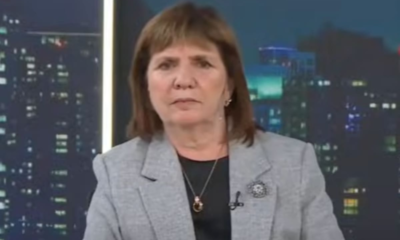INTERNACIONAL
Trump wagers US economy in high-stakes tariff gamble at 100-day mark
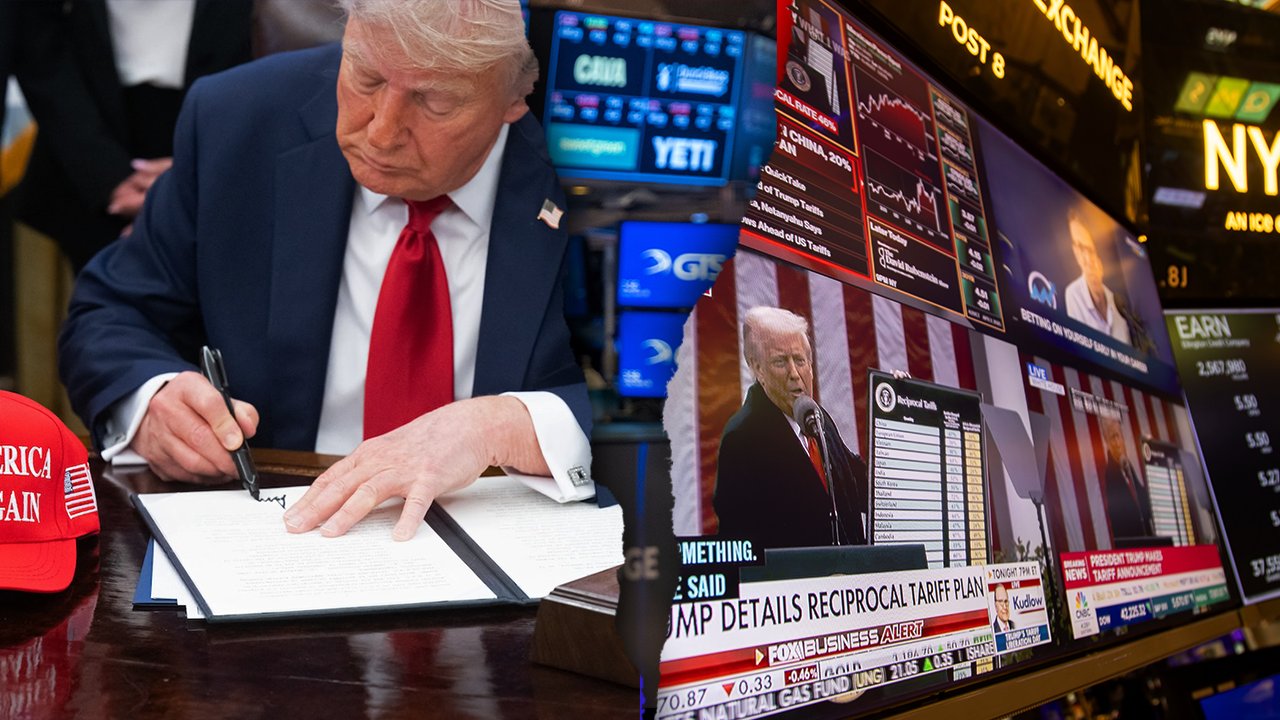
President Donald Trump campaigned for a second term on pledges to lower prices, create jobs and impose tough tariffs on imports, especially from China.
Dubbing himself the «Tariff Man» last fall, he told an audience at the Economic Club of Chicago, «To me, the most beautiful word in the dictionary is tariff.» However, in his first months in office, it is unclear whether Trump can, or should, implement the harsh reciprocal tariffs he announced in April against dozens of countries.
Now, 100 days into his second term, economists told Fox News Digital they see these proposed reciprocal tariffs as politically motivated, unnecessary and failing to secure the benefits from U.S. trading partners that Trump had been hoping for.
CHINA IS ‘CAVING’ TO TRUMP’S TRADE WAR STRATEGY, EXPERT SIGNALS
President Donald Trump holds a «Foreign Trade Barriers» document as he delivers remarks on tariffs in the Rose Garden at the White House in Washington, D.C., on April 2, 2025. (REUTERS/Carlos Barria/File Photo)
Instead, they warned, Trump’s tariffs could grind billions of dollars in trade to a halt between the world’s two largest economies, disrupt global supply chains and risk torpedoing the U.S. economy into a major slump or recession.
When Trump took office, chances of recession «were probably about 10%,» Justin Wolfers, an economist at the University of Michigan, told Fox News Digital in an interview. «Now, they’re up to around 55%.»
It is unclear whether Trump will continue to push through with these unpopular tariffs, which are slated to take force in early July. In the near-term, uncertainty and volatility remain.

Traders work on the floor of the New York Stock Exchange in New York City on March 28, 2025 amid President Donald Trump’s escalating trade war. (Spencer Platt/Getty Images)
Short-term tariff impact
Trump announced tariffs on April 2, dubbed «Liberation Day.» The announcement included both a 10% universal baseline tariff and plans to enact larger tariffs on dozens of other countries, including China.
These new import taxes immediately sent stock markets into free-fall, triggering one of the largest single-day S&P 500 losses since World War II, and prompting deep and unyielding uncertainty over possible next moves.
«The only thing that’s happened that has pushed the odds of a recession up so high, so fast, is chaos coming from out of the White House,» Wolfers said.
Trump subsequently paused the reciprocal tariffs for 90 days to encourage the administration to make «deals» with countries on trade and encourage more investment in U.S. manufacturing. Even so, some prices have already risen in anticipation of higher costs under the new tariff regime.
Uncertainty has also played a role. Trump’s tariff announcement in April prompted a number of large container ships to abruptly halt their shipments to the U.S. earlier this month and turn back to their original ports. This means that more consumers will see a price hike for everyday products, likely at certain big-box retailer stores like Walmart or Target, as early as next month.
These price hikes are «not showing up tomorrow, but will show up over the next few months, as scarcities develop and American retailers have to find other sources – that might take a while,» David H. Feldman, an economist and professor at William & Mary College, said in an interview.
TRUMP’S ULTIMATUM TO FEDERAL WORKERS: RETURN TO OFFICE ‘OR BE TERMINATED’
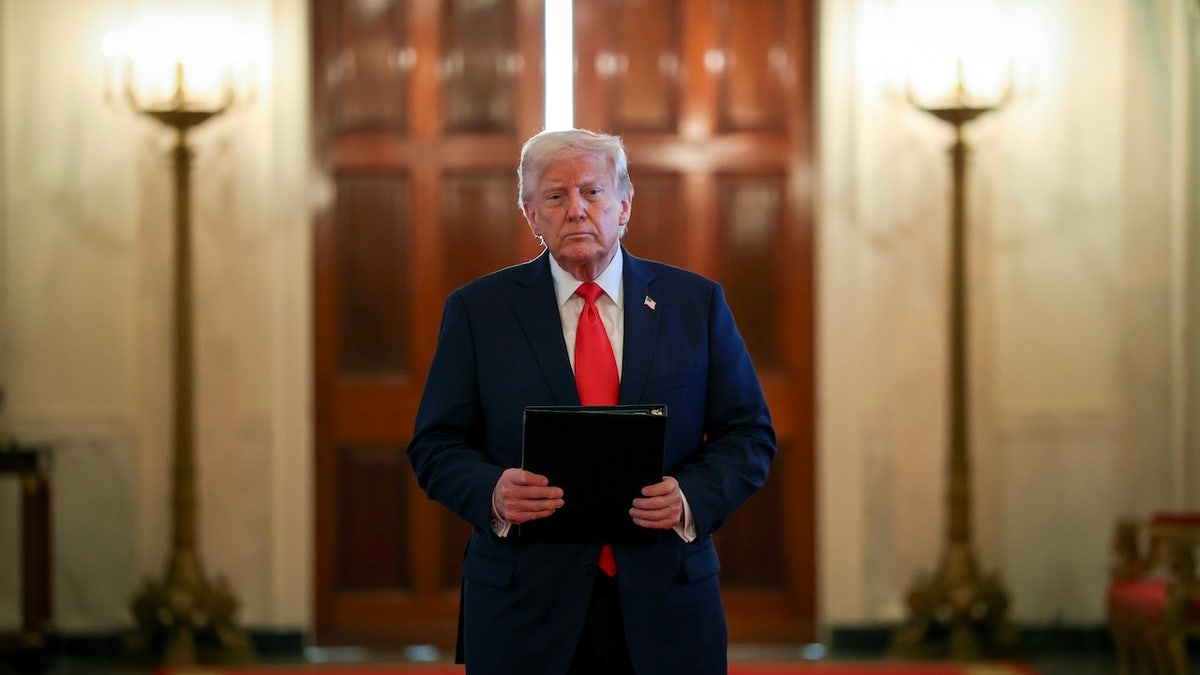
President Donald Trump arrives for a presentation ceremony in the East Room of the White House on April 15, 2025 in Washington, D.C. (Win McNamee/Getty Images)
While Trump says tariffs will target foreign competitors and reduce the trade deficit, the costs will fall mostly on working- and middle-class Americans who buy the bulk of imported goods.
Wolfers said Trump’s focus on the trade «deficit» is based on a common misconception.
«What that means is we sell China a small amount of stuff, and they sell us a large amount of stuff,» he explained. However, for every dollar bill that goes to China, the U.S. gets something for it that Americans want to buy, like T-shirts.
«We have a dollar deficit – but we have a stuff surplus.»
Potential for deescalation
There are few signs that Trump’s tariffs will deliver the gains he sought, such as onshoring U.S. production or securing better trade deals, particularly with Asian countries.
Instead, experts warn these countries are likely to circumvent U.S. markets and supply chains over time.
«If these tariffs stay in place, there will be hardly any trade between the U.S. and China,» by the second half of the year, Gary Clyde Hufbauer, a senior non-resident fellow at the Peterson Institute for International Economics, said in an interview.
Roughly $650 billion in annual trade between the two countries is at risk, along with knock-down effects on global commerce in the long term.
WORLD LEADERS REACT AS TRUMP RE-ENTERS THE WHITE HOUSE
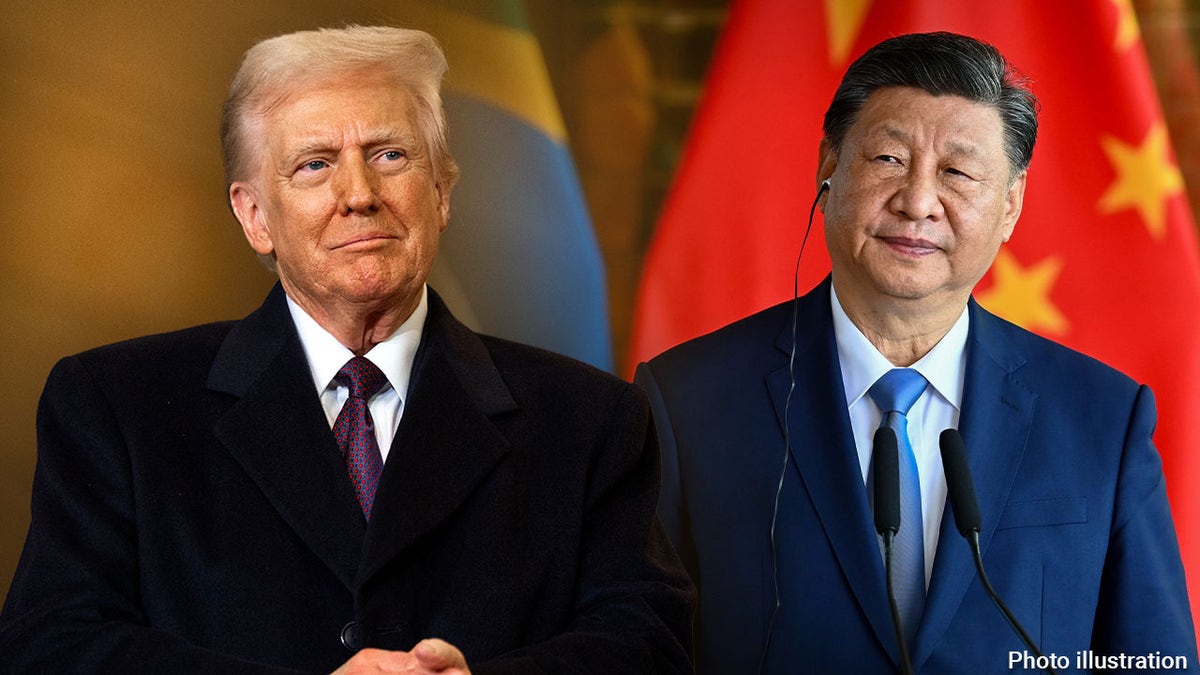
President Donald Trump, left, and Chinese leader Xi Jinping.
Trump’s tariffs also discard decades of international understanding that has depoliticized trade disputes, Feldman said.
The U.S. is «moving from a system that at least was based on mutually acceptable rules of behavior to a system that does not have that as its anchor,» Feldman, whose research focuses on global trade policy, told Fox News Digital. That shift allows the government to target foreign nations individually and offer selective tariff relief to firms and industries «if they do ‘our’ bidding,» he argued.
«America is now master of the shakedown.»
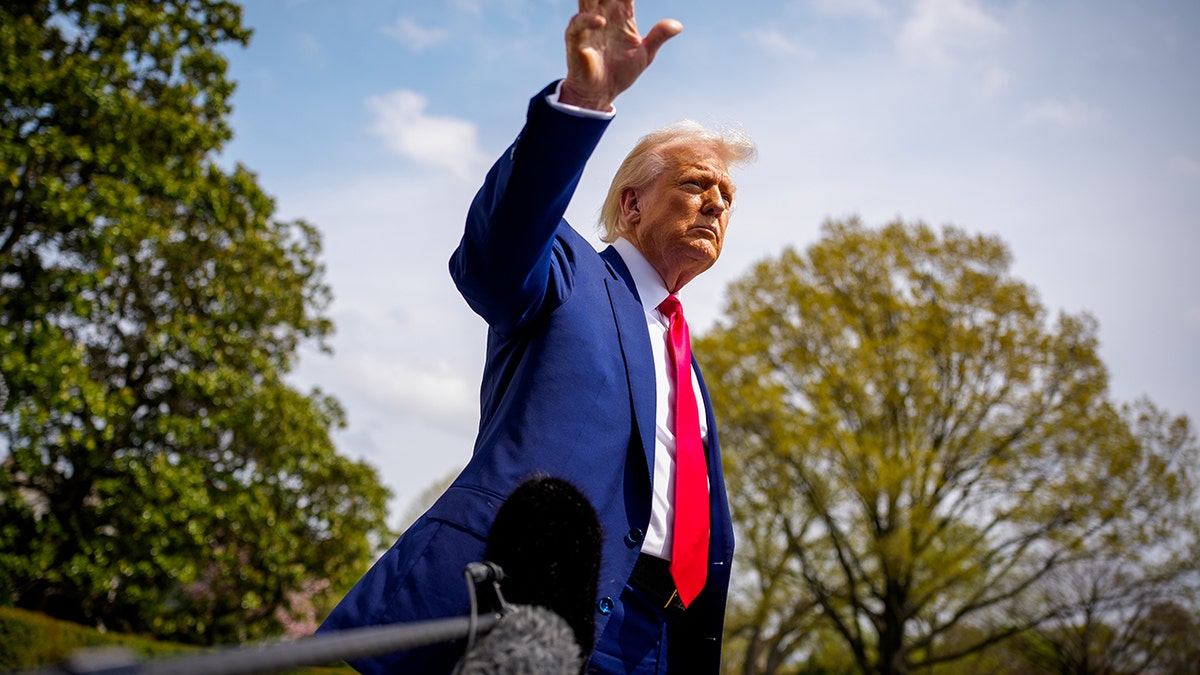
President Donald Trump gestures to members of the media before boarding Marine One on the South Lawn of the White House on April 3, 2025 in Washington, D.C. Trump spoke a day after announcing sweeping new tariffs targeting goods imported into the U.S. on countries including China, Japan and India. (Andrew Harnik/Getty Images)
Next steps
After market backlash, Trump appears to be warming to the idea of easing his proposed 145% reciprocal tariffs on China, which has vowed to impose its own retaliatory measures on U.S. goods.
Economists say he is more likely to do so if the economy sours, or he sees a major drop in poll numbers, if the past is precedent.
Still, any path to deescalation remains uncertain. Just last week, China denied Trump’s claim that the two countries were negotiating a tariff deal, after he asserted in an interview that he had reached «200 deals» on trade.
Economists believe Trump will at least partially scale back the tariffs before July but warn he is playing a high-stakes game of brinkmanship that could hit U.S. consumers and businesses hardest.
«What I worry about is that the immediate impact of uncertainty is on business investment in trade-exposed industries, leading to a recession,» Feldman said. «But it could get worse, if it transmits into a financial panic. And if everyone starts to say, ‘geez, I got to get into gold and cash, I can’t be in Treasury bills.’ If we move into a flight to cash, all bets are off.»
Should that happen, he said, «We could slide into 2008 all over again.»

A television broadcasts market news on the floor of the New York Stock Exchange in New York on Friday, April 4, 2025. (Michael Nagle/Bloomberg via Getty Images)
Trump has refused to concede that his early days have been anything but a major success.
In a recent interview with Time magazine, he touted his first 100 days as «very successful,» saying «people [are] writing that it was the best first month, and best second month, and really the best third month» for a U.S. president.
He dismissed stock market volatility and rising inflation as temporary «market fluctuation,» calling it a «transition period» that would level out.
When asked if he would consider it a win if tariffs remained as high as 50% on imports a year from now, Trump said he would.
CLICK HERE TO GET THE FOX NEWS APP
«Total victory,» he said.
«Everybody is going to benefit.»
Trump’s First 100 Days,Donald Trump,Politics,Trade,Taxes
INTERNACIONAL
Federal appeals court rules California ammunition background checks unconstitutional

NEWYou can now listen to Fox News articles!
A federal appeals court ruled Thursday that California’s first-of-its-kind law requiring gun owners to undergo background checks to purchase ammunition is unconstitutional, declaring that it violates the Second Amendment right to bear arms.
In a 2-1 decision, the 9th U.S. Circuit Court of Appeals upheld a lower court judge’s permanent injunction blocking the state from enforcing the law.
Circuit Judge Sandra Ikuta said the law «meaningfully constrains» the right to keep and bear arms and that the state failed to prove the law was consistent with the country’s historical tradition of firearm regulation as required under a 2022 U.S. Supreme Court decision, New York State Rifle and Pistol Association v. Bruen.
«By subjecting Californians to background checks for all ammunition purchases, California’s ammunition background check regime infringes on the fundamental right to keep and bear arms,» Ikuta wrote.
CALIFORNIA JUDGE BLACKS GUN CONTROL LAW REQUIRING BACKGROUND CHECKS FOR AMMO PURCHASES
A federal appeals court ruled that California’s law requiring gun owners to undergo background checks to purchase ammunition is unconstitutional. (Getty Images)
California Gov. Gavin Newsom, a Democrat, said the ruling was a «slap in the face» to efforts by officials in the Golden State to enact firearm restrictions to curb gun violence.
«Strong gun laws save lives – and today’s decision is a slap in the face to the progress California has made in recent years to keep its communities safer from gun violence,» Newsom said in a statement. «Californians voted to require background checks on ammunition and their voices should matter.»
The office of state Attorney General Rob Bonta, also a Democrat, said «our families, schools, and neighborhoods deserve nothing less than the most basic protection against preventable gun violence, and we are looking into our legal options.»
California voters approved a ballot measure in 2016 requiring gun owners to undergo initial background checks to purchase ammunition, as well as buy four-year ammunition permits.
Lawmakers later amended the measure to require background checks for each ammunition purchase.
California officials said they received 191 reports last year of «armed and prohibited individuals» who were blocked through background checks from purchasing ammunition.
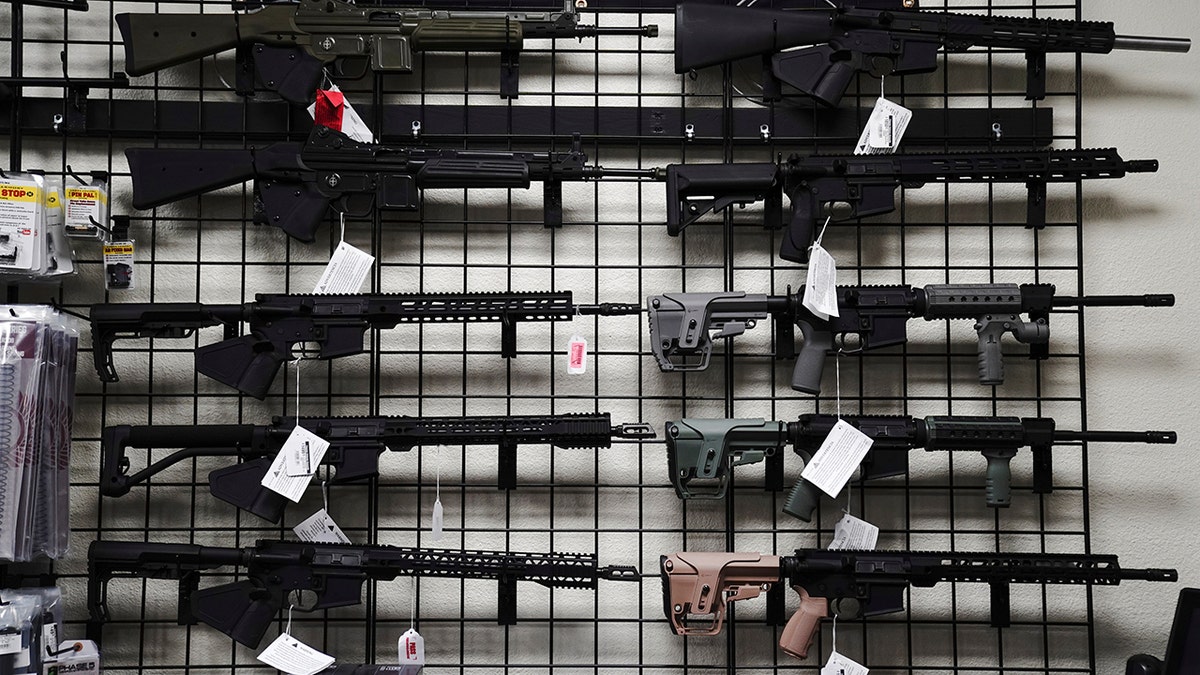
The 9th U.S. Circuit Court of Appeals upheld a lower court judge’s permanent injunction blocking the state from enforcing the law. (REUTERS/Bing Guan)
The state can ask an 11-judge appeals court panel or the U.S. Supreme Court to review the decision.
The plaintiffs included Kim Rhode, who has won three Olympic gold medals in shooting events, and the California Rifle & Pistol Association.
The gun group’s president and general counsel said in a joint statement that the decision was a victory against «overreaching government gun control,» while Rhode described it as «a big win for all gun owners in California.»
The injunction was issued by U.S. District Judge Roger Benitez in San Diego. An appeals court panel placed the injunction on hold while California’s appeal played out.
California argued that several old firearms restrictions supported background checks, including colonial-era rules requiring licenses to produce gunpowder, the disarmament around 1776 of people who refused to take «loyalty oaths» and late-19th century rules requiring government approval to carry concealed weapons.
‘EXCESSIVE’ STATE TAXES ON GUNS, AMMUNITION SALES ARE TARGET OF NEW GOP CRACKDOWN EFFORT
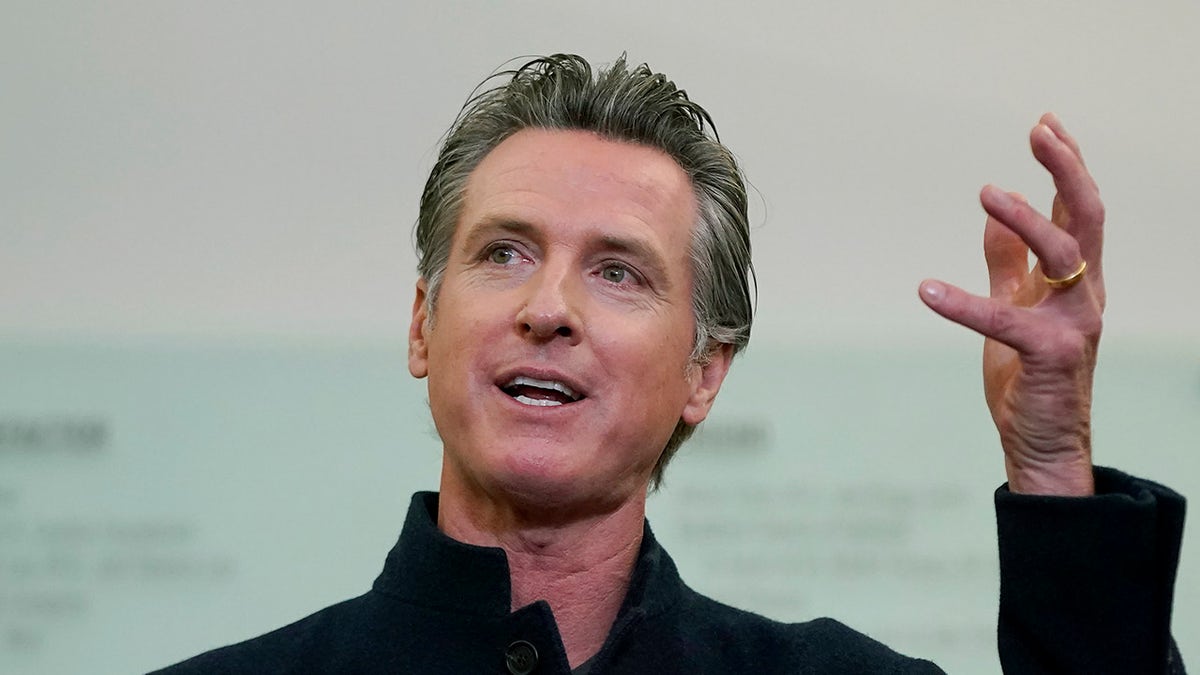
California Gov. Gavin Newsom said the ruling was a «slap in the face» to efforts by officials in the Golden State to curb gun violence. (AP Photo/Jeff Chiu, File)
CLICK HERE TO GET THE FOX NEWS APP
Circuit Judge Jay Bybee, who dissented from Thursday’s decision, accused the majority of ignoring Supreme Court guidance by effectively declaring any limits on ammunition sales unlawful, given the unlikelihood a state could point to identical historical analogues.
The law «is not the kind of heavy-handed regulation that meaningfully constrains the right to keep and bear arms,» Bybee wrote.
All three judges on Thursday’s panel were appointed by Republican presidents, although appointees of Democratic presidents hold a majority in the 9th Circuit.
Ikuta and Bybee were appointed by former President George W. Bush, while Circuit Judge Bridget Bade, who joined Thursday’s majority, was appointed by President Donald Trump.
Reuters contributed to this report.
INTERNACIONAL
Tailandia advirtió que los enfrentamientos armados con Camboya podrían derivar en una guerra “a gran escala”

Tailandia advirtió este viernes que los enfrentamientos armados con Camboya podrían escalar a una guerra a gran escala, en el segundo día consecutivo de hostilidades que ha dejado al menos 16 muertos y obligado a evacuar a más de 138.000 personas en ambos lados de la frontera.
“Si la situación se agrava podría derivar en una guerra, aunque por ahora sigue limitada a enfrentamientos”, declaró el primer ministro interino tailandés, Phumtham Wechayachai, ante la prensa en Bangkok.
La tensión se disparó el jueves debido a una disputa territorial de décadas entre los dos países del sudeste asiático, con combates que incluyeron el uso de tanques, aviones de combate, artillería y cohetes BM-21.
Se trata de la escalada militar más grave desde 2011 en una zona de 800 kilómetros de frontera, donde persisten áreas no delimitadas oficialmente, salpicadas de templos antiguos.
Según el Ministerio del Interior tailandés, las autoridades evacuaron a 138.000 civiles, incluidos 428 pacientes hospitalarios, desde cuatro provincias limítrofes con Camboya.
El balance oficial en Tailandia ascendió a 15 muertos —un soldado y 14 civiles— y 46 heridos. Por su parte, Camboya reportó un muerto y cinco heridos, en su primer informe oficial desde el inicio del conflicto.

Los enfrentamientos se reanudaron en la madrugada del viernes en tres puntos distintos, de acuerdo con el ejército tailandés. Según su versión, las fuerzas camboyanas lanzaron fuego con armas pesadas, artillería y cohetes múltiples, a lo que las tropas tailandesas respondieron con “fuego de apoyo apropiado”. El ejército agregó que los choques incluyeron seis zonas de combate el jueves, entre ellas dos antiguos templos.
En el municipio camboyano de Samraong, a 20 kilómetros de la frontera, periodistas de la agencia AFP registraron disparos lejanos de artillería durante la mañana. “Vivo muy cerca de la frontera. Tenemos miedo porque empezaron a disparar de nuevo sobre las 6 de la madrugada”, relató Pro Bak, un residente de 41 años que huía con su familia hacia un templo budista. “No sé cuándo podremos volver a casa”, añadió.
La crisis diplomática también se agravó. Tailandia expulsó al embajador camboyano y llamó a consultas a su representante en Phnom Penh, luego de que una mina terrestre hiriera a cinco soldados tailandeses. Camboya respondió retirando a todos sus diplomáticos en Bangkok, excepto uno, y degradando las relaciones al nivel más bajo.
El Consejo de Seguridad de la ONU se reunirá de urgencia y a puerta cerrada este viernes, tras una solicitud del primer ministro camboyano, Hun Manet.

En paralelo, Estados Unidos y Francia instaron al cese inmediato de las hostilidades, mientras que la Unión Europea y China expresaron una profunda preocupación y pidieron diálogo entre las partes.
Desde 2008 hasta 2011, los dos países ya libraron enfrentamientos en la zona, que dejaron 28 muertos y decenas de miles de desplazados. Una decisión de la Corte Internacional de Justicia en favor de Camboya calmó las tensiones durante una década. Sin embargo, la situación volvió a deteriorarse en mayo de este año, tras la muerte de un soldado camboyano en un nuevo choque fronterizo.
Los combates actuales reflejan la fragilidad de la paz en la región y han despertado la preocupación de la Asociación de Naciones del Sudeste Asiático (ASEAN).
El primer ministro de Malasia, Anwar Ibrahim, quien ocupa la presidencia rotativa del bloque, declaró haber hablado con sus homólogos de Camboya y Tailandia, a quienes pidió diálogo inmediato. Según dijo, ambos mostraron “señales positivas y predisposición” a buscar una salida pacífica.
(Con información de AFP)
Asia / Pacific,Defense,Diplomacy / Foreign Policy,SINGAPORE
INTERNACIONAL
Fox News Poll: The GOP is seen as more likely to have a clear plan for the country
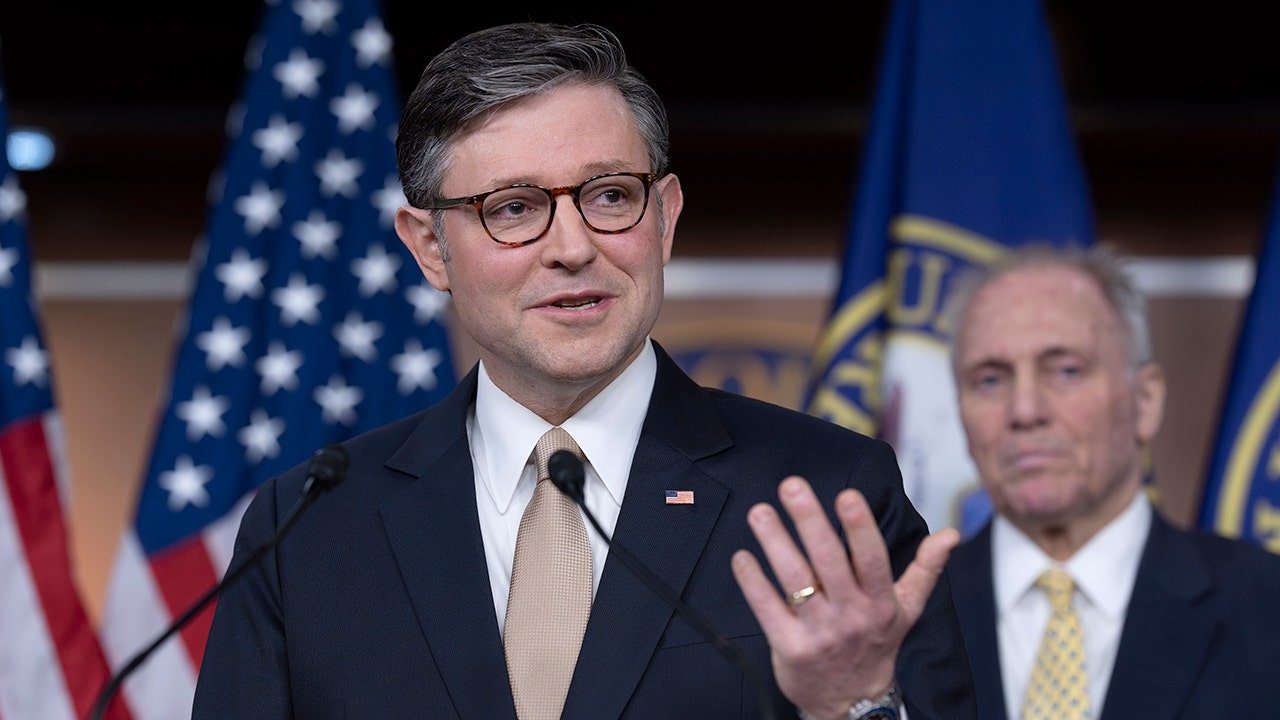
NEWYou can now listen to Fox News articles!
With the 2026 midterm elections more than a year away, a new Fox News survey finds that while the Republican Party has lost some ground to the Democratic Party on handling key issues, voters are more likely to think the GOP has a clear plan for dealing with the country’s problems.
The survey, released Thursday, finds that by a 10-point margin, more voters think the Republicans have a clear plan for the U.S. than the Democrats: 43% vs. 33%. Still, majorities feel neither the GOP (54%) or the Democrats (64%) have a plan. This is about where sentiment was three years ago, the last time the question was asked.
FOX NEWS POLL: TRUMP FACING HEADWINDS AT SIX-MONTH MARK
Far more Republicans (79%) than Democrats (51%) are confident their party has a clear plan, and that’s what hurts the Democrats. While at least two-thirds of independents feel neither party has a plan, more trust the GOP (30% vs. 25%).
At the same time, the survey shows some significant erosion in the GOP’s handling of key issues compared to the last time Fox asked in 2023, including in areas where they are traditionally preferred.
Voters view the Republican Party as better able to handle national security (by 14 points), immigration (+6R), and government spending (+5R) while the Democratic Party is favored on climate change (by 23 points), health care (+19D), social security (+17D), education (+15D), and energy policies (+6D).
The parties are rated about equally on inflation (+1D), gun policy (even), the economy (+1R), and foreign policy (+3R).
Compared to 2023, support for the GOP is down on immigration by 4 points, national security by 6, government spending by 6, foreign policy by 9, and the economy by 14. Plus, the Republicans’ 12-point advantage on inflation has disappeared, as Democrats have a 1-point edge today.
While the Democrats have largely maintained support on their best issues, it’s noteworthy they saw a 12-point increase on education, as voters have been split on who would better handle the issue for the last few years.
FOX NEWS POLL: APPROVAL OF SCOTUS AT 5-YEAR HIGH, REBOUNDING FROM RECORD LOW IN 2024
These shifts can mostly be attributed to self-identified Democrats solidifying their preference for their own party’s handling of the issues, as well as independents lessening their support for Republicans or switching to Democrats.
Self-identified Republicans continue to express high levels of support for their party on the issues.
«Independents and even some Democrats had soured on President Biden and the Democratic Congress by 2023 and 2024, but they have shifted to the left a bit in 2025 in response to the policies of President Trump and the Republicans,» says Republican pollster Daron Shaw, who conducts the Fox News survey with Democrat Chris Anderson. «An appreciable part of this is performance related. Without obvious economic and foreign policy victories, independents and soft Democrats could drift to the left, which could scramble the electoral dynamic heading into 2026.»
Overall, views of both major political parties are underwater. By 2 points, the Republican Party has a slightly better favorable rating (44% favorable) than the Democratic Party (42%), but more than half view both parties negatively (56% and 57% unfavorable, respectively). That’s relatively unchanged since April.
Positive views of the Republican Party have shown steady growth since October 2019, while the Democratic Party has been on a downward trajectory, reaching a record low in April (41% favorable).
The Republican Party enjoys more support among their party faithful (83% have a favorable view) than the Democratic Party (78% favorable). Seven in 10 independents have a negative view of both.
CLICK HERE FOR CROSSTABS AND TOPLINE
Conducted July 18-21, 2025, under the direction of Beacon Research (D) and Shaw & Company Research (R), this Fox News survey includes interviews with a sample of 1,000 registered voters randomly selected from a national voter file. Respondents spoke with live interviewers on landlines (114) and cellphones (636) or completed the survey online after receiving a text (250). Results based on the full sample have a margin of sampling error of ±3 percentage points. Sampling error for results among subgroups is higher. In addition to sampling error, question wording and order can influence results. Weights are generally applied to age, race, education, and area variables to ensure the demographics of respondents are representative of the registered voter population. Sources for developing weight targets include the American Community Survey, Fox News Voter Analysis and voter file data.

 ECONOMIA3 días ago
ECONOMIA3 días agoEl consumo en Argentina crece 4% en junio, ante menor inflación y más crédito

 POLITICA1 día ago
POLITICA1 día agoMáximo Kirchner declaró una fortuna de 8.300 millones de pesos: representa un 76% más que el año anterior

 POLITICA2 días ago
POLITICA2 días agoLos organizadores de la Derecha Fest pasaron un video de Villarruel y algunos asistentes gritaron “traidora”



























